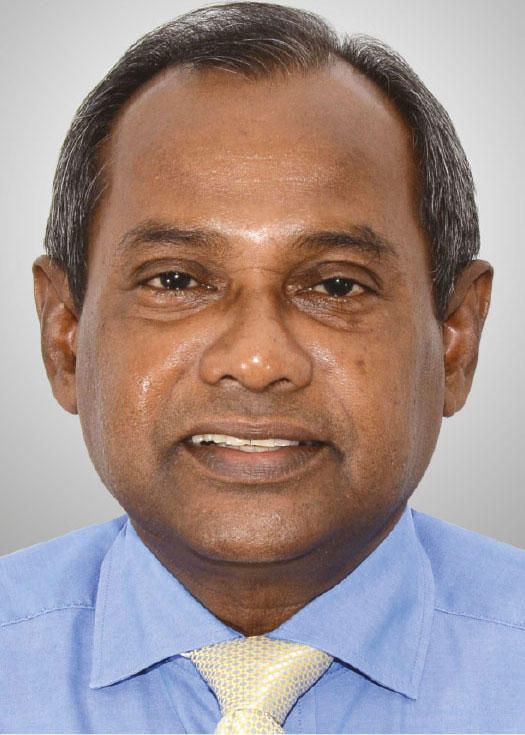SPICE SECTOR
Remarkable Story
Sarada De Silva presents expert insights into the modern spice sector

Leading spice entrepreneur Sarada De Silva believes that recent events have done little to dent the market. Instead, he maintains that the future is bright for spices such as cinnamon, cloves, pepper, ginger and turmeric, all of which benefit from the sudden need for salubrious spices in the wake of the COVID-19 pandemic.
“It augur s well for spices,” says De Silva, who adds: “However, while the future is promising, speedy preparation is paramount. Finished consumable products for spices that are branded and ready to use for consumers – from drinks and perfumes, to essential oils and flavours from oleoresin along with other products such as tinctures – will witness growing popularity. The sector must make adequate preparations to meet this end.”
s well for spices,” says De Silva, who adds: “However, while the future is promising, speedy preparation is paramount. Finished consumable products for spices that are branded and ready to use for consumers – from drinks and perfumes, to essential oils and flavours from oleoresin along with other products such as tinctures – will witness growing popularity. The sector must make adequate preparations to meet this end.”
In his estimation, the value in producing finished products is substantial; while the country dominates the world in cinnamon, it doesn’t have the land to compete in terms of volume in other spices such as pepper, which accounts for less than three percent of global production.
Asked about strategies he thinks will help revive the spice sector, De Silva adds that “branding has already been completed. The Ceylon Cinnamon Lion Logo has already been registered in major markets. And Ceylon Spices – which covers pepper, clove and nutmeg – has been launched at the Anuga trade fair.”
“However, while they are duly branded, the brand needs consistent investment in markets by the Sri Lanka Export Development Board (EDB) and government, as well as the private sector,” he maintains.
De Silva also explains that “the Ceylon Spices brand can piggyback on other segments such as tourism, and gain exposure at ITB, World Tourism Mart and Expo Dubai 2020. Companies must make products rather than manufacturing in bulk for others to add value.”
Given the shifts in the global supply chain, he notes that while India is Sri Lanka’s primary market for pepper and cloves, the US and EU are the largest importers of cinnamon. He continues: “There is potential to go East. Marketing the benefits of cinnamon over cassia to the growing upper middle class could be promising.”
De Silva emphasises the growing necessity for consistent policy on the part of the state with the need for properly managed free trade zones (FTZs) such as in India, which facilitates easy importing, value addition and exporting to complete the product mix of the spice sector.
An advocate of Ceylon Cinnamon, he also reports that Sri Lanka has done admirably to distinguish itself from the cheaper carcinogenic substitute cassia, adding that efforts to separate the HS Codes of cinnamon and cassia, and separate ISO standards, have been instrumental to this success.
And De Silva cites the recent development of the Cinnamon Training Academy (CTA) as a step in the right direction: “A 2012 study revealed the lack of cinnamon processors in the country due to a flagging dignity associated with the profession.”
“The CTA offers training all the way from the cinnamon seed to regulated exports, which garners the commodity the same quality and recognition as tea; but it goes the additional step in ensuring dignity and excellence, in training for processors, managers and other staff in the trade,” he says, adding that his ultimate goal is to convert the CTA into a ‘Spice Academy’ to cover other major spices.
De Silva asserts that obtaining geographical indications for Ceylon Cinnamon will provide the same geographical weight as valuable European wines, scotch and cheese, offering the highest level of protection and branding for cinnamon.
Going forward, he notes that Sri Lankan spices should be marketed with savvy branding akin to those of major tea players while reflecting on their salubrious qualities, complemented by consistent taxes, policies and loan schemes.He concludes: “Ceylon spices have a remarkable story to be told – and it is high time the world hears the tale.”




